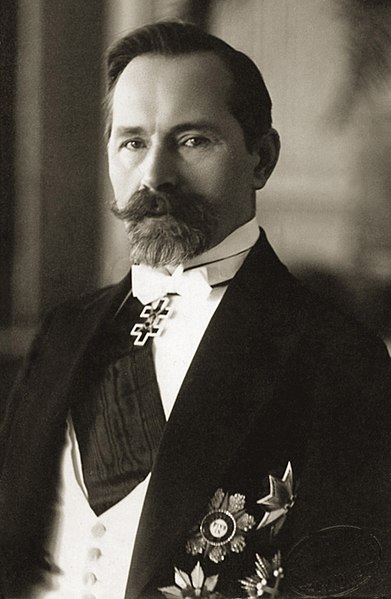Karolis Juozovic Požela was one of the early Lithuanian communist leaders. As a medical student at the University of Tartu, he joined the Russian Social Democratic Labour Party (bolsheviks) in 1916. In the short-lived Lithuanian Soviet Socialist Republic he organized communists in Šiauliai. After the collapse of the Soviet regime, Požela joined the underground Communist Party of Lithuania (CPL) becoming a member of its Central Committee in 1921. When party leadership was arrested in Königsberg in 1921, he remained essentially the only party leader in Lithuania. He continued political work and became a member of CPL Orgburo in 1923 and Politburo in 1926. At various times, he edited and published various communist newspapers and publications, including Tiesa (Truth), Kareivių tiesa, and Darbininkų gyvenimas. For his communist activities, he was imprisoned a total of six times. When Lithuanian military organized the coup d'état of 17 December 1926, the official rationale was to protect Lithuania from an imminent Bolshevik revolt. In the aftermath, many communists were arrested. Požela and three others, who became known as the four communards, were executed on 27 December in the Sixth Fort of the Kaunas Fortress.

Soviet postal stamp (1986)
House where Požela was born
1926 Lithuanian coup d'état
The 1926 Lithuanian coup d'état was a military coup d'état in Lithuania that replaced the democratically elected government with a nationalist regime led by Antanas Smetona. The coup took place on 17 December 1926 and was largely organized by the military; Smetona's role remains the subject of debate. The coup brought the Lithuanian Nationalist Union, the most conservative party at the time, to power. Previously it had been a fairly new and insignificant nationalistic party. By 1926, its membership reached about 2,000 and it had won only three seats in the parliamentary elections. The Lithuanian Christian Democratic Party, the largest party in the Seimas at the time, collaborated with the military and provided constitutional legitimacy to the coup, but accepted no major posts in the new government and withdrew in May 1927. After the military handed power over to the civilian government, it ceased playing a direct role in political life.

Antanas Smetona and his party were major beneficiaries of the coup.
President Kazys Grinius was ousted by the military on his 60th birthday.




